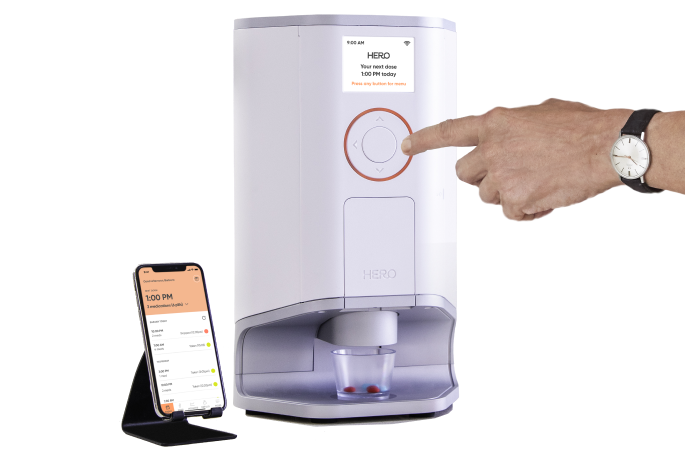Original Medicare vs. Medicare Advantage: A Simple Guide to Choosing the Right Plan

When Medicare eligibility comes knocking, it brings an important choice with it. It’s not just about signing up - it’s about deciding how you want to receive your health coverage. You can go with the traditional route, Original Medicare, or choose an all-in-one Medicare Advantage plan. One offers flexibility, while the other provides bundled benefits.
We’re here to gently walk you through the differences, so you can choose the path that brings you the most peace of mind.
Please note: This article is for informational and educational purposes only and is not intended to influence your choice of any particular plan. We aim to simplify the key differences to help you in your research, but you should always consult official Medicare resources or a licensed insurance agent to make final decisions.
The Foundation: What is Original Medicare?
Original Medicare is the traditional government program offered by the federal government’s Department of Health and Human Services. It includes two main parts:
- Part A (Hospital Insurance): This covers inpatient hospital stays, skilled nursing care, some home health, and hospice care.1
- Part B (Medical Insurance): This covers a wide range of outpatient services, including doctor visits, lab tests, and preventive care.1
The Alternative: What is a Medicare Advantage Plan?
A Medicare Advantage plan, sometimes called Part C, is an all-in-one alternative to Original Medicare. These plans are offered by private insurance companies approved by Medicare.1 When you join a Medicare Advantage plan, you get your Part A and Part B coverage directly from the private plan instead of the government.
Original Medicare vs. Medicare Advantage: A Simple Comparison
At first glance, these two paths to Medicare coverage can seem confusingly similar. But the truth is, they work very differently in your day-to-day life.
To help you see the choice clearly, let's put them side-by-side. We’ll compare them based on what matters most: your budget, your freedom to choose your doctors, and the benefits you use.
Your Monthly Costs
Original Medicare: With Original Medicare, your costs generally come in three main forms:
- Monthly Premiums: You'll have a monthly premium for Part B. Most people receive Part A premium-free based on their work history.
- Deductibles: You pay a set amount for your care each year before Medicare begins to pay its share.
- Coinsurance: After your deductible is met, you typically pay 20% of the cost for most services.
For many, the biggest concern is that Original Medicare has no yearly limit on what you might pay for that 20% share, which can create financial uncertainty. 1,2
Medicare Advantage:
Many Medicare Advantage plans are designed to be affordable. Most people have access to plans with a $0 monthly premium (though you do still pay your standard Part B premium). For peace of mind, every plan also includes a yearly out-of-pocket maximum—a safety net that limits how much you'll spend on medical care in a year. Once you reach that limit, your plan pays 100% for covered services for the rest of the year. Until then, you'll have predictable copays for things like doctor visits and prescriptions.1,2
Provider Access and Flexibility
Original Medicare: With Original Medicare, you have the freedom to visit any doctor or hospital anywhere in the United States, as long as they accept Medicare. You also don’t need a referral to see a specialist.1
Medicare Advantage: Most Medicare Advantage plans use a local network of doctors and hospitals. To keep your costs low, you’ll generally need to use providers who are in your plan’s network. Many plans also require a referral from your primary care doctor to see a specialist.1
Prescription Drug Coverage
Original Medicare: Original Medicare does not cover most prescription drugs you take at home. To get this important coverage, you can add a separate, standalone Medicare Part D plan, which will have its own monthly premium.2
Medicare Advantage: Most Medicare Advantage plans simplify your life by bundling prescription drug coverage right into the plan. This gives you the convenience of one card and one plan to manage for both your medical and prescription needs.3
Coverage When You Travel
Original Medicare: If you often travel within the U.S., Original Medicare is a great companion. Your coverage goes with you nationwide, so you can see any doctor or hospital that accepts Medicare, whether you’re at home or visiting family several states away. It’s important to know, however, that it generally does not cover medical care outside the country.1
Medicare Advantage: Medicare Advantage plans are designed to provide excellent coverage within a local service area. While emergency and urgent care are always covered when you travel, your plan isn't designed for routine visits with doctors in different parts of the country. Like Original Medicare, most plans do not cover care received internationally.1
Extra Benefits
Original Medicare: As the traditional program, Original Medicare is designed to cover your core, medically necessary care. This means it generally doesn’t cover routine dental, vision, or hearing services, or wellness extras.5
Medicare Advantage: This is an area where Medicare Advantage plans often shine. To provide more complete coverage for your overall well-being, many plans bundle in the extra benefits that Original Medicare doesn’t offer. These can include things like:
- Routine dental care, like cleanings and checkups
- Vision exams and allowances for glasses
- Hearing aids and fittings
- Gym memberships or fitness programs 5
Enrollment, Switching, and Special Considerations
Navigating the world of Medicare can feel like a game with a lot of confusing rules. But understanding when and how you can make changes is one of the most important steps to finding a plan that works for you. Let's make sense of the key times and rules for joining or switching your coverage.
Important Enrollment Periods: Your Windows of Opportunity
- Annual Election Period (AEP): Every year, from October 15 to December 7, you have a chance to change your plan.7 This is your main window to join, switch, or drop a Medicare Advantage plan. Think of it as an open season for your coverage.
- Medicare Advantage Open Enrollment Period: If you have a Medicare Advantage plan and you're not happy with it, you have a second chance to make a change. From January 1 to March 31, you can switch to a different Medicare Advantage plan or, if you prefer, go back to Original Medicare.7
- Medigap Enrollment Window: If you start with Original Medicare and want to add a Medigap (supplemental) plan, you have a special, one-time period to do so without worrying about your health. Your six-month Medigap Open Enrollment Period begins the month you turn 65 and are enrolled in Medicare Part B. During this time, you are guaranteed the right to buy any Medigap policy, no matter your health history. If you miss this window, switching later may be more difficult or more expensive, especially if you have health issues.1,6
Key Rules to Remember
- You can't have both. It’s important to know that you cannot have a Medigap policy and a Medicare Advantage plan at the same time. A Medigap policy is designed to work with Original Medicare only.6
- The "Trial Right" Protection: There’s a special rule that protects some Medicare Advantage members. If you enrolled in a Medicare Advantage plan when you first became eligible for Medicare (at age 65) and you decide within the first 12 months that you don't like it, you have a "trial right". This guarantees you the ability to switch back to Original Medicare and buy a Medigap policy. 6
A Special Note for Remote Therapeutic Monitoring (RTM) Users
If you use and value a remote care program, it’s a good idea to speak with your provider before switching or renewing plans. Because coverage rules can vary between plans, ask if your new plan will continue to cover remote monitoring and other services that may be important to you, and whether your costs might change.8 This helps ensure your care can continue smoothly.
A Heads-Up: Your Costs Can Change Annually
It’s important to know that a plan's costs aren't set in stone. Private insurance companies that offer Medicare Advantage plans can adjust their co-pays, deductibles, and premiums each year.9
Thankfully, you won't be caught by surprise. Every fall, you will receive an "Annual Notice of Change" (ANOC) document. This is your personal guide to what’s different for the upcoming year. Be sure to look for changes to:
- Your monthly premium and annual deductibles
- Co-pays for services like doctor visits or remote care
- Your list of covered benefits
These changes can happen for many reasons, such as rising healthcare costs or new provider contracts.10 If you see something you don’t like, the Open Enrollment period is your dedicated time to switch to a plan that better fits your needs.
No Matter Your Plan, Peace of Mind is Key
Choosing a health plan is only the first step. The real work is in the day-to-day - making sure medications are taken correctly and consistently. Whether it’s for you or a loved one, that responsibility can be a source of constant worry, especially when juggling multiple prescriptions.
This is where Hero brings peace of mind. Our complete service is designed to make medication management one less thing to worry about.
The award-winning smart dispenser sorts and dispenses the right pills at the right time, while the connected app keeps you on track with reminders. For a caregiver, the app is a powerful tool that can notify you if a dose is missed, allowing you to check in and offer support. And if you ever have a question, our 24/7 live support team is always here for you.
Is Hero covered by Medicare?
This is a common and important question. While a direct subscription to the Hero service is not covered by Medicare, you may be able to get Hero at a reduced or even no cost if you enroll in the Remote Therapeutic Monitoring (RTM) program, subject to applicable copays and deductibles.
An RTM program is a service offered by healthcare providers and may be a benefit covered by Medicare Part B or Medicare Part C or other insurance plans. In this case, your chosen provider is the one offering the service, and Hero is the technology they use to monitor your medication adherence.
When Hero is part of your provider's official care plan, it creates a powerful partnership. Your healthcare team can receive updates on the medication routine they are monitoring, giving them a clearer picture of your health between visits. This provides incredible peace of mind, knowing that a professional team is connected and aware—truly making it one less thing to worry about.
Visit Hero’s online provider directory to check eligibility and find a healthcare provider that serves your area.
Your Next Step: Choosing with Confidence
Ultimately, the best Medicare plan is the one that fits your life. It's a personal choice that comes down to what you value most: the nationwide flexibility of Original Medicare or the bundled simplicity and cost protection of a Medicare Advantage plan.
There is no right or wrong answer, only the right answer for you. By taking the time to understand these differences, you are taking a powerful step toward managing your health with confidence. To compare the specific plans available in your area, you can use the official Plan Finder tool on Medicare.gov.
Choosing a plan is a big decision, but it doesn't have to be a stressful one. You've got this.
References:
1.Medicare.gov - Compare Original Medicare & Medicare Advantage https://www.medicare.gov/basics/get-started-with-medicare/get-more-coverage/your-coverage-options/compare-original-medicare-medicare-advantage
2. Medicare.gov - Costs https://www.medicare.gov/basics/costs/medicare-costs
3. Medicare.gov - Parts Of Medicare https://www.medicare.gov/basics/get-started-with-medicare/medicare-basics/parts-of-medicare
4.KFF - Medicare Advantage in 2025: Premiums, Out-of-Pocket Limits, Supplemental Benefits, and Prior Authorization https://www.kff.org/medicare/issue-brief/medicare-advantage-premiums-out-of-pocket-limits-supplemental-benefits-and-prior-authorization/
5.Medicare.gov - How does Medicare work? https://www.medicare.gov/basics/get-started-with-medicare/medicare-basics/how-does-medicare-work
6.Medicare.gov - Understanding Medicare Advantage Plans https://www.medicare.gov/publications/12026-understanding-medicare-advantage-plans.pdf
7. Joining a Plan https://www.medicare.gov/basics/get-started-with-medicare/get-more-coverage/joining-a-plan
8. CMS.gov - Telehealth & Remote Patient Monitoring https://www.cms.gov/files/document/mln901705-telehealth-remote-patient-monitoring.pdf
9. Medicare Rights - What is an Annual Notice of Change? https://www.medicarerights.org/medicare-answers/2017/08/07/blog-annual-notice-change
10. KFF - Medicare Advantage in 2024: Enrollment Update and Key Trends https://www.kff.org/medicare/issue-brief/medicare-advantage-in-2024-enrollment-update-and-key-trends/
Complex med schedule? We solved it.
Hero’s smart dispenser reminds you to take your meds and dispenses the right dose, at the right time.

The contents of the above article are for informational and educational purposes only. The article is not intended to be a substitute for professional medical advice, diagnosis, or treatment. Always seek the advice of your physician or other qualified clinician with any questions you may have regarding a medical condition or its treatment and do not disregard professional medical advice or delay seeking it because of information published by us. Hero is indicated for medication dispensing for general use and not for patients with any specific disease or condition. Any reference to specific conditions are for informational purposes only and are not indications for use of the device.



